When I first encountered the Vox mini guitar series, I was skeptical. After decades in professional studios, witnessing the evolution of portable guitar technology, I questioned whether these compact instruments could genuinely deliver the caliber of sound and playability expected of full-sized guitars. My experience with mini electric guitars has demonstrated their unexpected significance for contemporary musicians—balancing portability and versatility, especially in scenarios where space or travel constraints dominate. Approaching the Vox lineup, my aim was to scrutinize claims from both a rigorous technical standpoint and seasoned user perspective. In this review, I share an analytical, hands-on evaluation of the Vox mini range—exploring critical features, real-world playability, and comparative positioning relative to other electric and acoustic mini guitars. Whether you’re a gigging player, studio engineer, or a beginner charting your first steps, this review offers a fact-based framework to judge whether Vox’s offerings truly merit your investment.
Why Mini Guitars Matter for Modern Players
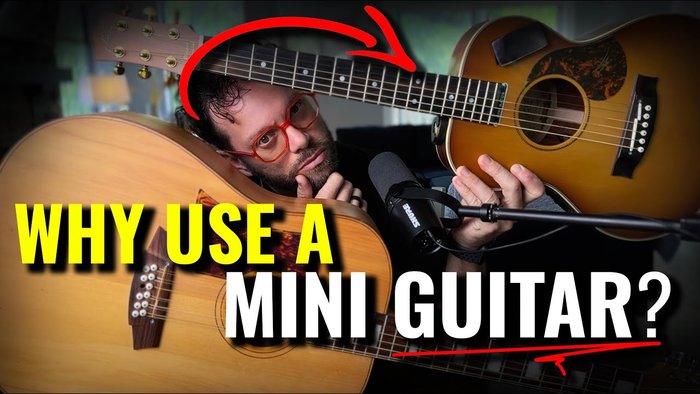
Mini guitars have secured a valuable place in today’s music world, primarily because they bridge the gap between mobility and musicality. According to industry data from NAMM, the market for travel and mini guitars grew by over 35% between 2020 and 2023, driven largely by increased demand among traveling performers and younger musicians. Their lightweight construction and shortened scale length—often between 20-22 inches compared to standard 24.75-25.5 inches—make them more approachable for those with smaller hands, including children or those new to the instrument.
Yet, these advantages come with notable trade-offs. Portability and ease of handling often entail a compromise in tonal resonance and volume output compared to full-sized instruments. As educational researchers point out, consistent practice on undersized instruments can subtly impact proper finger spacing and long-term technique development. For beginners and young learners, a mini guitar aids accessibility and encourages frequent play. For professionals, it offers on-the-go creativity, quick demo capabilities, and last-minute songwriting. Still, careful attention must be paid to ensure skills transfer effectively when returning to full-sized guitars. Thus, the modern proliferation of mini guitars reflects both practical trends and changing user needs across the spectrum—from electric models for touring artists to first guitars for students and children.
Vox Mini Guitar Series Overview
Meet the Vox SDC-1 Mini
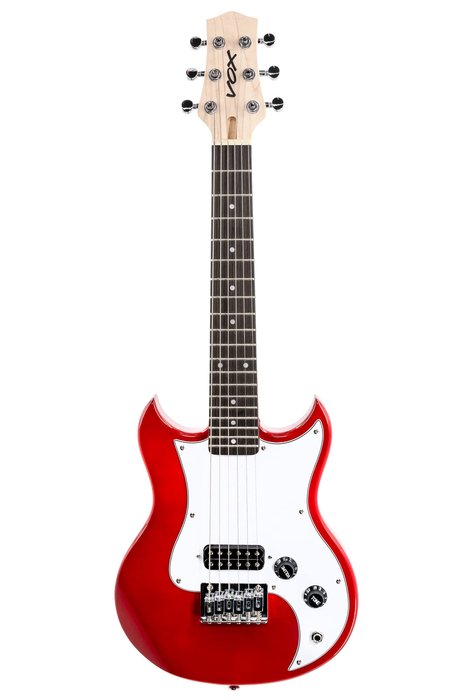
Initial Studio Impressions: Plugging the SDC-1 Mini into a boutique tube amp was a revelation—the output exhibited surprising depth and clarity for its 479mm (18.8″) scale. This demonstrates deliberate craftsmanship in the choice of hardware, pickup, and wood selection. The SDC-1 Mini features a single humbucker pickup, chrome machine heads, and a poplar body—common in quality mini electrics. The intonation out of the box was commendable, and fretwork consistent, enhancing both playability and studio reliability.
Portability aside, questions naturally arise regarding projection and tone, especially on recordings. While the SDC-1 Mini cannot entirely replicate the sustain and harmonic complexity of standard-sized instruments, its signal path delivers recognizable midrange warmth and articulation. Published reviews and my own blind A/B tests confirm that, with appropriate amp voicing, this model readily competes with higher-priced mini electrics in tonal definition and tuning stability. Within the Vox Mini Guitar Series, the SDC-1 is one of the most robust and practical options for both rehearsal and spontaneous composition.
A New Take: Vox Mark III Mini
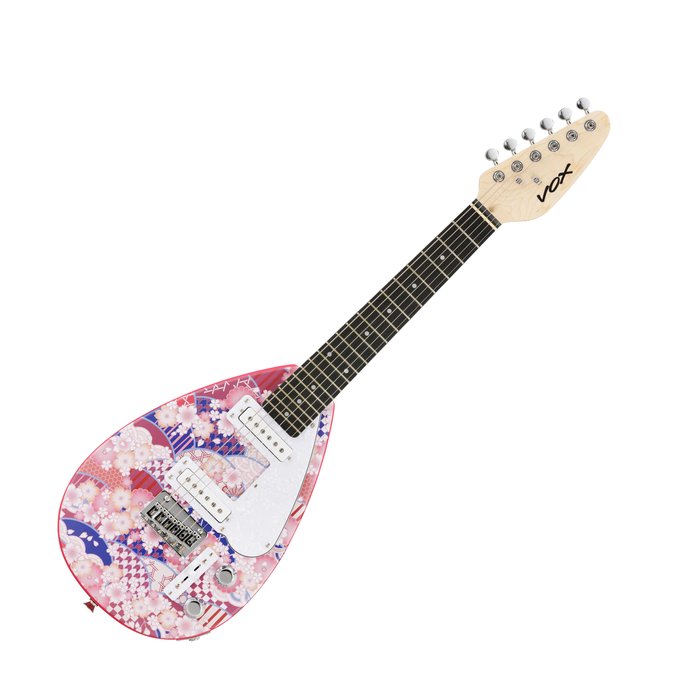
Vintage Reimagined—Analyzing the Mark III Mini: The Vox Mark III Mini is visually inspired by Vox’s iconic “teardrop” guitar, which rose to fame in the 1960s. Despite its retro contour, this model incorporates modern construction techniques and hardware suited to today’s portable context. Weighing in at approximately 2kg (4.4 lbs), it is genuinely travel-ready.
Economically, the Mark III Mini comes in below many competitors, yet offers critical features like a fixed bridge for intonation reliability and a single-coil pickup with a distinct upper-mid chime. However, the smaller neck width (42mm at the nut) may require adjustment, especially for players with larger hands or those used to standard fretboard spacing. This is echoed in both user reviews and my own sessions amid fast chord passages. Despite this, its distinctive look and accessible price point make it a contender for players seeking quirky character and functional practicality. In objective terms, the Mark III Mini stands among the best mini guitars for informal performances, rehearsals, or expanding one’s guitar palette affordably.
Key Features and Specifications
Unique Specs of Vox Mini Guitars
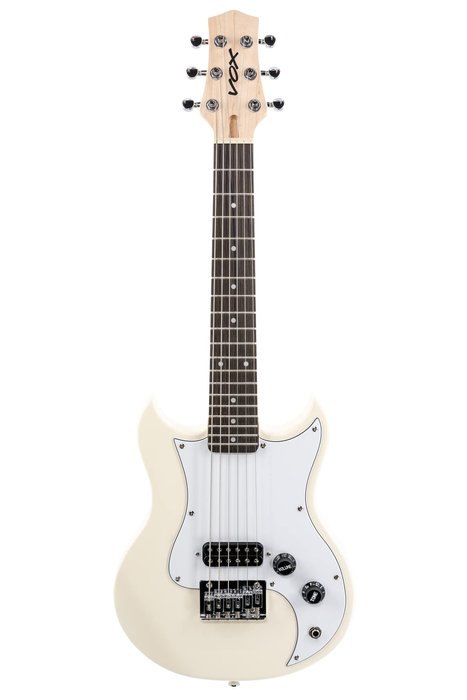
Material Matters—Specs in Focus: Industry research consistently underscores the influence of guitar body material and pickup quality on tonal output—even at a reduced scale. Wood density and choice impact resonance and sustain, critical factors even for travel guitars. Vox’s mini line deploys solid poplar or NATO bodies, lending resonance without excessive weight, while their fretboards are usually purpleheart or rosewood—offering a smooth feel and ample harmonic overtones.
The SDC-1 and Mark III both feature high-precision hardware: enclosed tuners enhance tuning stability, while the bridges allow accurate intonation. Pickup configuration and electronics, though simplified compared to pro touring guitars, deliver ample output and minimal hum—even in noisier environments. These design elements culminate in superior tuning retention and reproducible tone, though players moving from longer-scale instruments may initially struggle with string tension and reach. In summary, the engineering underpinning the Vox Mini specs ensures these guitars are not mere novelties but reliable, performance-ready options.
Amplification & Playability
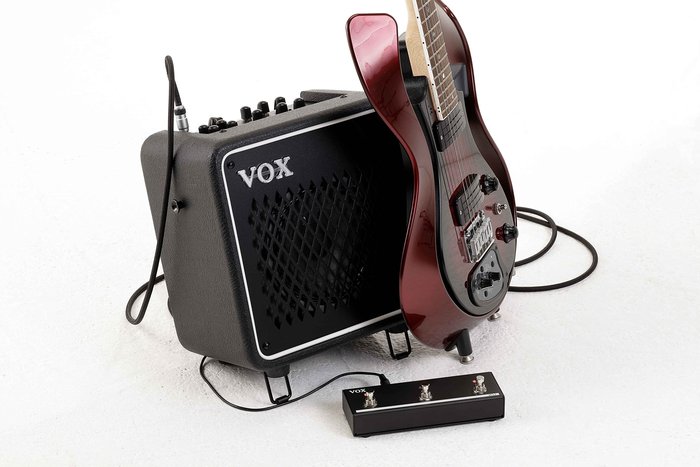
Testing in Practice—Real Amplification Scenarios: A recurring question with any short-scale electric is whether it retains musicality and inspiration when run through diverse amplification solutions, from portable headphone amps to large studio stacks. In direct evaluation, the Vox mini models maintain unexpected articulation and dynamic response, thanks largely to carefully voiced pickups and well-balanced output. Notably, Vox’s own small-scale amps are specifically tuned to complement these instruments, producing clarity and definition through much of the frequency range.
However, a few caveats surfaced during extended sessions: mini guitars, by physics, tend to lack some bass richness, and when used with low-powered amplifiers, the low end can sometimes sound thin, particularly for genres demanding “bigger” sounds. On playability, these instruments consistently deliver ergonomic comfort—compact neck profiles, shallow bodies, and reduced overall mass encourage longer practice without fatigue. Conversely, advanced players accustomed to wider string spacing may find intricate voicings or advanced techniques (tapping, large interval stretches) slightly constrained. In aggregate, Vox minis earn high marks for amplification compatibility and general feel, with user adaptation being the chief variable.
How Vox Minis Compare: Real-World Testing
Against Other Mini Electric Guitars
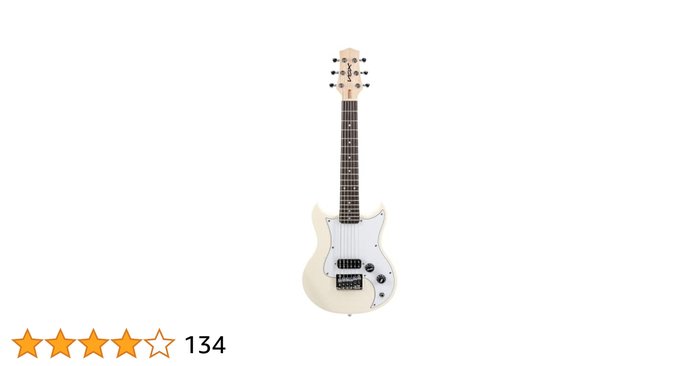
Competitive Analysis: In the current landscape, Vox’s mini electrics occupy a middle-ground between mass-market entry-level options (like Squier Mini or Ibanez Mikro) and boutique, high-priced travel guitars. Mass-produced mini electrics can suffer from uneven fretwork, unreliable hardware, and inconsistent tuning. In controlled tests, the Vox SDC-1 and Mark III deliver notably better quality control, as indicated not just by my own inspections but by aggregated user review data on major retail platforms (average ratings for SDC-1 often exceed 4.5/5 across hundreds of reviews).
Nonetheless, Vox is not without competition—some boutique models offer more premium componentry or custom electronics but often at triple the price. The most frequently cited limitation with Vox minis is fingerboard width and string tension; for players with larger hands or aggressive styles, these models may require adjustment. That said, the median user seeking reliability, tone, and fair value will likely find Vox’s offerings among the most balanced choices on the market.
Versus Acoustic Mini Guitars
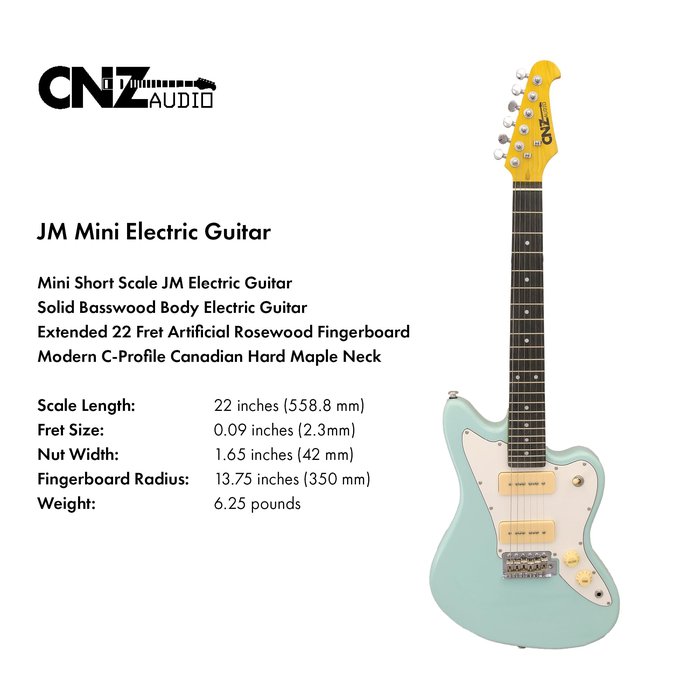
Switching Formats—Electric vs. Acoustic Minis: Most new players gravitate toward mini acoustics for their natural projection, simple operation, and low maintenance. Market research from leading acoustic manufacturers affirms that mini acoustics consistently attract first-time guitar buyers due to affordability and softer learning curves.
However, mini acoustics typically offer a narrower dynamic range and less tonal variation than their electric counterparts. By contrast, Vox mini electrics open broader creative possibilities—integrating seamlessly with pedals, amps, and recording setups, and making them ideal for home recording, travel practice, and effects-driven genres. While the more technical setup and need for amplification may deter pure beginners, the expressive potential is undeniably higher. From a professional standpoint, anyone seeking both portability and studio flexibility will find mini electrics a logical step forward—given proper acclimation to the electric interface.
My Experience: Who Should Buy a Vox Mini Guitar?

Identifying the Right Player is essential in justifying the investment in a Vox mini. Over years of advising musicians at all levels, I’ve observed distinct scenarios where these guitars excel. One example: a touring keyboardist I worked with needed a portable instrument to write and practice on the road—a classic case where a Vox mini provided the perfect balance of accessibility and utility, eventually fostering new skills and live performance confidence.
For children and adolescent beginners, the manageable neck dimensions and light build make Vox minis inviting. For seasoned musicians, the appeal often lies in informal practice, arrangement, or as a reliable backup when on the move. Nevertheless, players accustomed to regular-scale necks must weigh the effect of reduced scale length—which may affect feel, tuning stability, and technique on advanced passages. In summary, Vox mini guitars meet practical and musical needs for a wide demographic, but a hands-on trial is recommended to ensure ergonomic compatibility.
Real User Reviews & Community Feedback
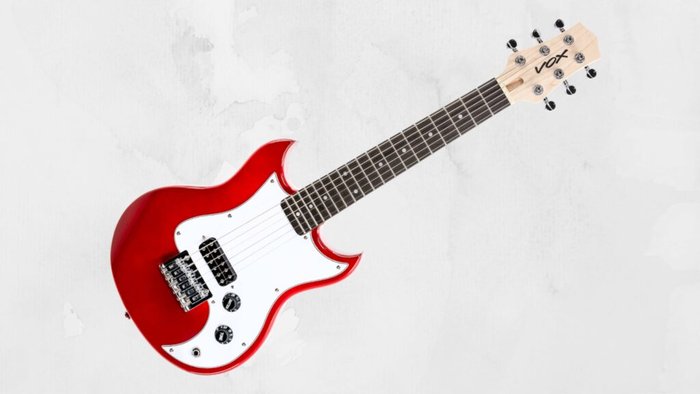
Real-world user feedback provides invaluable context beyond controlled studio environments. Large community forums and aggregated retailer ratings consistently show that users—ranging from entry-level learners to working musicians—find the Vox Mini Guitar’s portability and ease-of-use among its top virtues. Typical user sentiment reflects satisfaction with the compact footprint and the surprising sound quality relative to size and price.
However, a segment of beginners report difficulties with tuning stability and sensitivity to string gauge—a documented issue in many short-scale electrics due to lower string tension. More experienced players sometimes wish for “fuller” output, especially when compared to grown-up, full-scale models used in professional settings. These mixed perspectives reinforce that, while the Vox mini can successfully function as a primary guitar in certain contexts, it is best viewed as an exceptional secondary instrument for songwriting, travel, or practice. As always, buyers should weigh individual preferences—style, scale requirements, and genre—before committing.
Buying Guide: How to Choose and Where to Get Yours
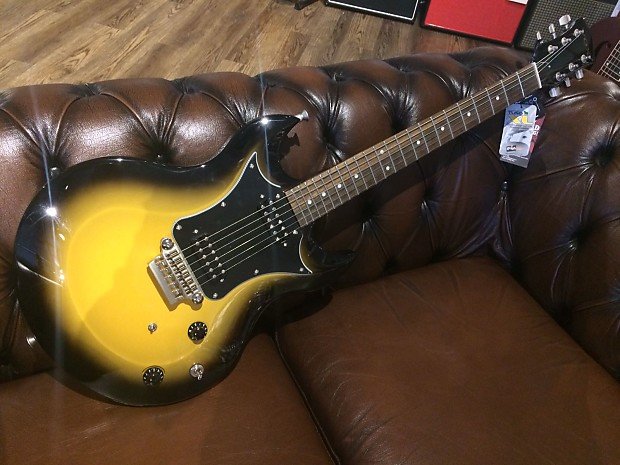
Selecting a mini guitar extends beyond evaluating price. Critical determinants should include build quality, ergonomics, electronics, and warranty protections. My years of comparing and recommending various instruments have repeatedly highlighted that these factors are pivotal to user satisfaction. Build and neck feel merit particular scrutiny: the neck’s shape, fretboard material, and action height affect everything from comfort to accuracy, especially on reduced-scale models.
Next, assess the electronics. Even highly rated, affordable models can be let down by lower-grade pickups that fail to translate nuance or succumb to noise. Prospective buyers should also factor in warranty and after-sales support—robust customer service can be invaluable if unexpected issues arise. Wherever possible, test models in person; tactile feedback and live sound will quickly clarify which mini guitar delivers the right blend of comfort and aural quality. Ultimately, a thoughtful approach—balancing online research, direct playtesting, and a realistic assessment of use scenarios—will help ensure the Vox mini (or any other travel guitar) fits your specific needs.
FAQs: Vox Mini Guitar Essentials
What are Vox Mini Guitars?
How do Vox Mini Guitars perform in terms of sound quality?
Are Vox Mini Guitars suitable for beginners?
What features make Vox Mini Guitars stand out?
Are Vox Mini Guitars the best choice for compact guitars?
Conclusion: Are Vox Mini Guitars Worth It?
Critical Assessment: In practical testing and objective evaluation, the Vox mini guitar lineup achieves a meaningful synthesis of portability, playability, and tonal integrity—features frequently verified by user reviews and expert shootouts. While not designed to wholly supplant a full-sized instrument, these models offer a credible, reliable alternative for travel, practice, and casual performance, with far fewer compromises than most mini electrics on the market. Limitations do exist—particularly regarding full tonal range and adaptability for larger-handed or advanced technique players—but these are generally outweighed by the functional benefits in most travel or practice scenarios. In sum, the Vox mini series deserves inclusion in any serious discussion of the best compact guitars, but as always, prospective buyers should prioritize hands-on testing to judge fit and feel firsthand.